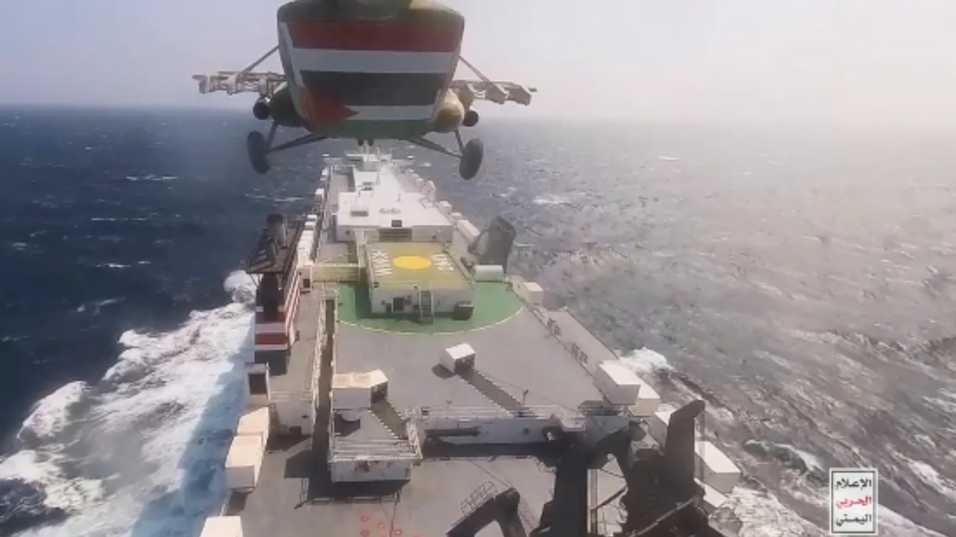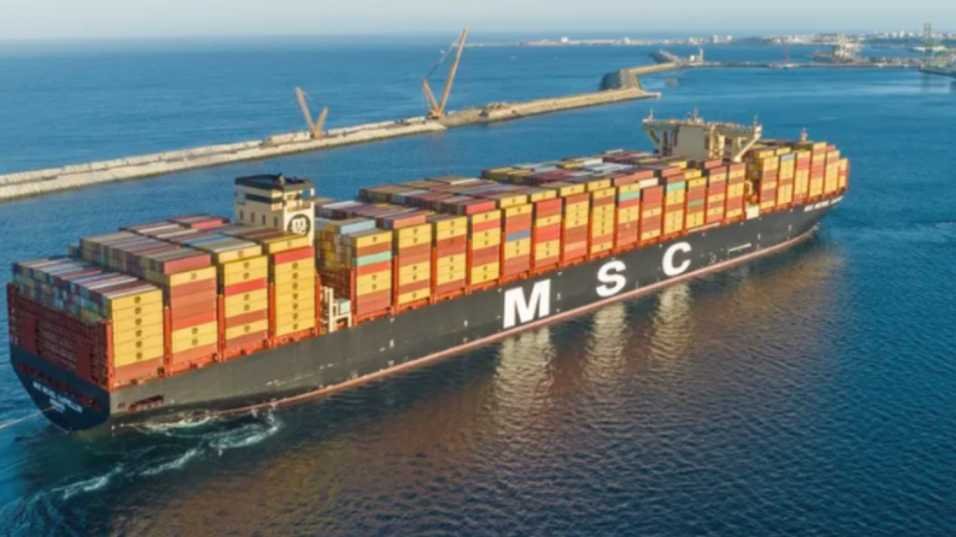In recent days the series of attacks on commercial ships in the Red Sea by Houthi rebels in Yemen has raised concerns among the international trade. Several major shipping firms, which includes the world’s second-largest, Maersk, have opted to reroute vessels. The route prompting the United States to initiate an international naval operation named Operation Prosperity Guardian. This comprehensive analysis explores the implications of the Red Sea attacks. And also the international response, and the far-reaching consequences for global trade and oil prices.
Houthi Attacks Prompt Shipping Route Alterations
The Houthi rebels’ attacks on commercial vessels have prompted a swift response from major shipping companies. Maersk, a global shipping giant, announced on Tuesday that it would reroute some of its vessels around Africa’s Cape of Good Hope. This alternative, while ensuring the safety of shipments, adds approximately 3,500 nautical miles to the journey, leading to operational challenges and increased costs for the shipping industry.
Red Sea Attacks International Response: Operation Prosperity Guardian
In response to the escalating security threats in the Red Sea, the United States has spearheaded an international naval operation named Operation Prosperity Guardian. Participating countries in this joint effort include the United Kingdom, Canada, France, Bahrain, Norway, and Spain. The objective is to protect ships navigating the Red Sea route and maintain the uninterrupted flow of global trade.

Houthi Rebels’ Defiant Stance
As international efforts intensify, Houthi rebels have vowed to persist in their attacks on vessels in the Bab al-Mandeb strait, a crucial shipping lane connecting Asia and Europe. Senior Houthi official Mohammed al-Bukhaiti affirmed their commitment to military operations, regardless of the sacrifices involved, highlighting the complexity of the situation.
Red Sea Attacks Global Concerns and Virtual Diplomacy
US Defense Secretary Lloyd Austin convened a virtual meeting with ministers from over 40 countries, emphasizing the severity of the Houthi attacks as a significant international problem. The UK’s Ministry of Defence echoed these concerns, deploying the Royal Navy destroyer HMS Diamond to join the new task force amid a deteriorating security situation.
Strategic Impact on Trade Routes
The Red Sea, a vital conduit for oil and liquefied natural gas shipments. And also consumer goods, has become a focal point of geopolitical tension. The Bab al-Mandab Strait, often referred to as the Gate of Tears, serves as a critical juncture near the coast of Yemen. At the northern end lies the Suez Canal, further accentuating the strategic importance of the region.
Houthi Motivations and Regional Dynamics
The Houthi rebels have declared their backing for Hamas in its conflict with Israel. This allegiance has led the rebels to target vessels that they believe are heading for Israel. Which intensify the geopolitical complexities surrounding the Red Sea attacks. Despite assurances from some firms, such as Investor Chemical Tankers, that their vessels have no links to Israel, the indiscriminate nature of the attacks adds to the uncertainty.
Challenges Posed by Advanced Weaponry
Analysts highlight the use of ballistic missiles in the recent attacks, a significant departure from previous methods. The introduction of this advanced weaponry poses a challenge for maritime security, with naval historian Sal Mercogliano emphasizing the difficulty of intercepting such missiles, marking a concerning escalation in tactics.

Economic Fallout and Oil Prices
Oil giant BP announced a temporary pause in all shipments of crude through the Red Sea, contributing to a 1% rise in oil prices. While the current impact on oil prices has been relatively minimal, the potential for increased transportation costs and disruptions in the global supply chain could have far-reaching economic consequences. The alternative route around the Cape of Good Hope adds logistical complexities, further affecting shipping timelines and costs.
Rerouting Challenges and Global Supply Chain Implications
Shipping companies, including Hapag-Lloyd, are grappling with the decision to reroute vessels. Hapag-Lloyd, whose vessel was attacked, emphasizes the need for 100% assurance regarding the safety of the Red Sea route. The rerouting of ships poses a finely balanced challenge for the global supply chain. With all the potential implications for the timely delivery of goods, including finished products such as electronics and consumer goods.
Red Sea as a Global Trade Artery
The Red Sea serves as a vital artery for global trade. Tis trade facilitates the transportation of oil, liquefied natural gas, and various consumer goods. Accounting for 12% of global trade flows and 30% of global container traffic, any disruption in this crucial route has far-reaching consequences for economies worldwide.
Conclusion: Navigating Uncertain Waters in Global Trade
As the situation in the Red Sea unfolds, the global community faces complex challenges in safeguarding vital trade routes. The geopolitical dimensions, coupled with the strategic importance of the Red Sea, demand coordinated international efforts. The ongoing Operation Prosperity Guardian underscores the urgency of the situation. The next steps taken by the international community will play a pivotal role in restoring stability to this critical maritime corridor and mitigating the broader economic fallout. Stay tuned for further developments in this rapidly evolving scenario.


